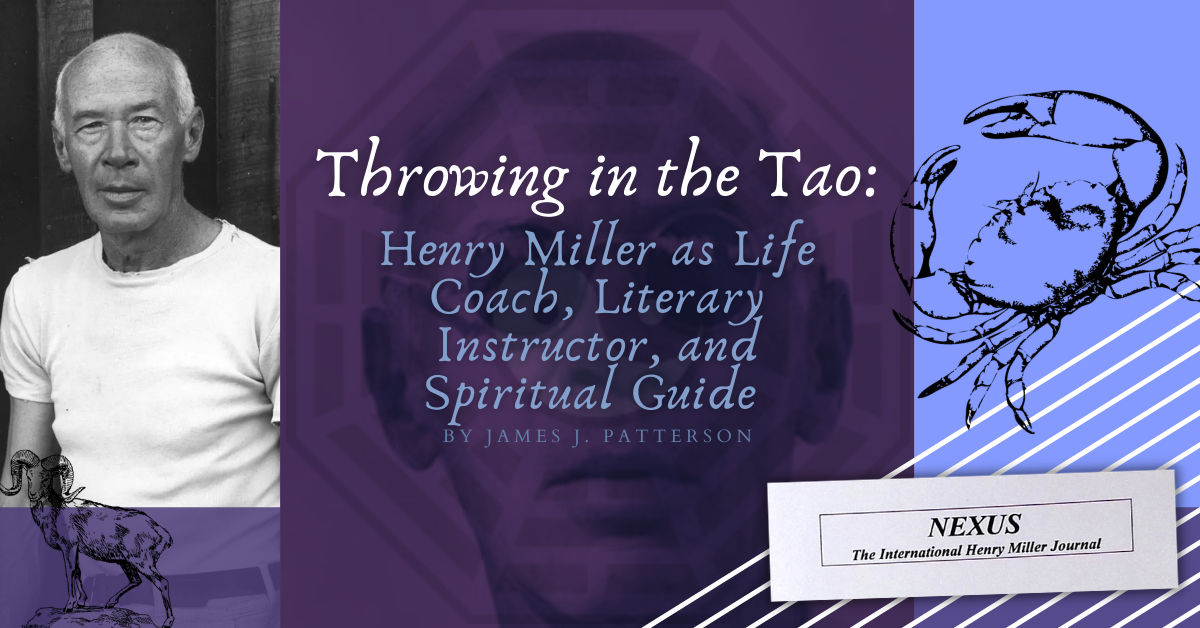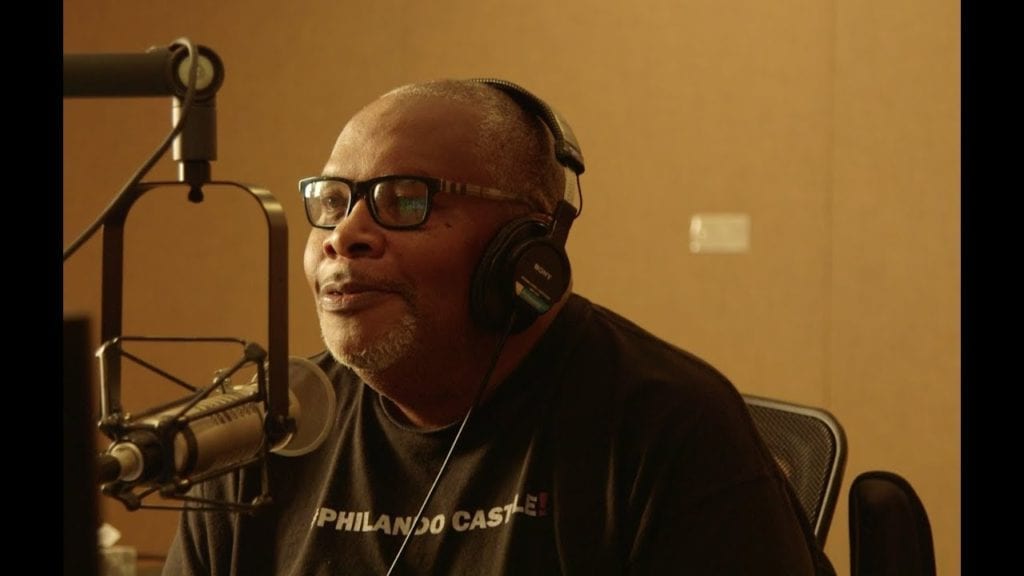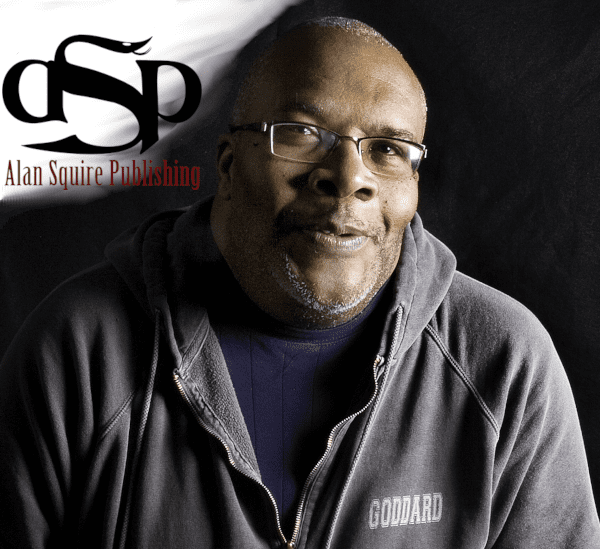Throwing in the Tao; James J. Patterson's New Essay Appears in Henry Miller Journal
The full title of James J. Patterson's new essay which appears in Nexus: The International Henry Miller Journal is "Throwing in the Tao: Henry Miller as Life Coach, Literary Instructor, and Spiritual Guide"

With a new edition of Nexus: the International Henry Miller Journal comes a whole new discourse on the oft-ignored American master. James J. Patterson's unique perspective on Miller appears as "Throwing in the Tao..." an essay concerning the correspondence between writer Lawrence Durrell and his mentor, Henry Miller. An excerpt follows below. Catch it in the new edition of Nexus. And check out another essay by James J. Patterson published in The Bulletin "Hermes at the Kakistocracy Hotel."
In these early letters to Miller, Lawrence Durrell lamented his frustration with the “racket” called publishing. Miller took an instant liking to the ex-patriot Englishman, and wrote back from the Villa Seurat, in Paris. It was the summer of 1936, but it could have just as easily been the winter of 1988, or today, for that matter, and his letter could have just as easily been addressed to two writing, working, musicians, slugging their way through the blizzards of bullshit that are the American recording and arts industry in general.
After some brief commiserations, Miller got down to business:
“Listen Durrell, don’t despair yet. If you have the guts for it the thing to do is to go to the bitter end, in your writing I mean. If you can possibly hold out, and I imagine you can, write only what you please. There is nothing else to do, unless you want to become famous. They will shit on you anyway, so have your say first. I’m not recommending obscenity necessarily. Each man has his own way of being himself and of saying it so ultimately that he can’t be denied. Compromise is futile and unsatisfactory.”
As Hunter S. Thompson might say, here comes the wisdom, the kicker, the template and business plan on which I depended upon for the rest of my professional life.
“You will always have a hundred readers and, if they have taste and discernment, what more can you ask? Even when you elect to be absolutely honest it is difficult. Expression seems such a natural, God-given thing – and yet it’s not either. It’s a life-long struggle to find yourself. Think of Cezanne, Van Gogh, Gauguin, Lawrence. Think of Dostoevsky – or Titian, if you will. Think of the autobiographical documents: they teach you more than anything… (The Durrell-Miller Letters, Paris, August, 1936, pg., 16,17).
This piece of writing hit us both like a nourishing warm breeze. Soothing, reassuring, liberating. From that moment on, we catered to our tastes, and ours alone - in our songwriting and compositions, our approach to our audience, as well as business people, and in defining who we were and what we were about.
“You will always have a hundred readers, and if they have taste and discernment…” they can go out and get you another hundred we reasoned, and they can get you another two hundred, and on and on. There it was, the blessedness of networking. And weren’t Miller and his friend Alfred Perles doing just that? Clearly, they had gotten the young Durrell to sign up for subscriptions to their projects, like writers did in Balzac’s day. The multiplication was working. And if it could work for them it could work for us!
“On the Road, Columbia, South Carolina, Spring 1959” A Poem by Reuben Jackson
“There’s much said in what’s not said in Reuben Jackson’s poetry. His cleverly sparse style often convincingly veils the complexities of which he writes, just until the poet sharply corrects our deception.” Linda Stiles
Those deceptions Ms. Stiles refers to above often come from Reuben’s use of the child’s point of view. As a child, the narrator, and reader by proxy, is looking up at the absurdity of adult interests and actions with a renewed curiosity. The narrator misses the cut of the barber’s words when asked “aren’t you proud of being negro?” The narrator cannot reason why the neon lights of the roadside motel are fading in the rear-view window, and yet his father seemed once so confident…
New Poem by Reuben Jackson, “Radio Nights”
Radio Nights by Reuben Jackson ASP is proud to premier the new Reuben Jackson poem, “Radio Nights.” From Reuben: As I mentioned during the interview with Rose Solari, my childhood […]
Reuben Jackson Reads his Poem “Second Grade”
Reuben Jackson Reads “Second Grade” “Reuben Jackson’s poems are gateways to possible worlds. With the finesse of a real sleight-of-hand artist, he transforms the truly personal—hopes, dreams, desires—into universal memories.” Richard […]

